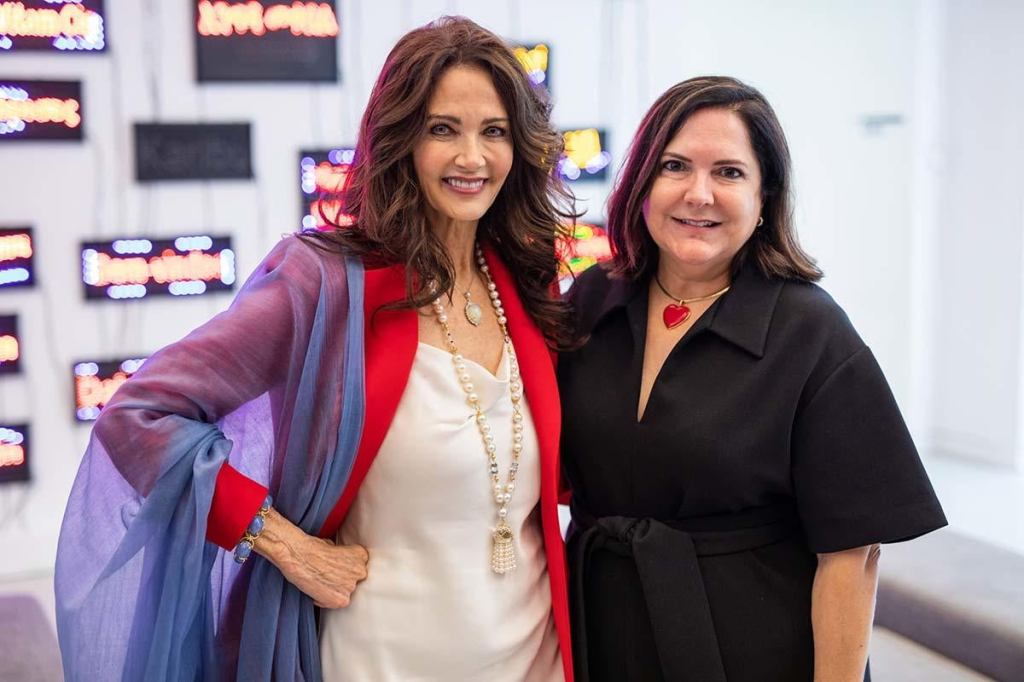This year marks the 80th anniversary of Wonder Woman and it isn’t just the world of comics celebrating the milestone year for the iconic character. The beloved Amazon has long been a pop culture staple and inspiration beyond the pages of DC Comics, including live-action films and television adaptations. Perhaps the most iconic of those adaptations is Lynda Carter’s take, with Carter playing Diana Prince/Wonder Woman on the classic television series, Wonder Woman, from 1975 to 1979. It’s Carter’s Wonder Woman – and her iconic spin transforming her from Diana Prince to the titular superhero – that inspired Dara Birnbaum’s pioneering video Technology/Transformation: Wonder Woman (1978-79). The short film uses footage from the television series interspersed with explosive imagery, sirens, and 70s funk music to explore and challenge the idea of feminine identity in media. The film recently went on display at The Bass Museum of Art in Miami Beach, opening on National Wonder Woman Day, and now in honor of the hero’s anniversary as well as the film going on display, Carter sat down with ComicBook.com to reflect on her part of the Wonder Woman legacy as well as Birnbaum’s unique piece of art.
One of the hallmarks of Carter’s Wonder Woman is, for many, how relatable she is as a woman who is both intelligent and powerful, and according to Carter, that wasn’t necessarily something that was on the table when she came to the character – but feminism was, and for her, that was a major influence to how she brought the character from page to screen.
“What was on the table was feminism. That was definitely on the table, but it was tampered down quite a bit, the feminine part of the 40s version of the character,” Carter told ComicBook.com. “That being said, what I decided when producers mentioned or someone mentioned ‘oh women are gonna not like you because the outfits and blah blah blah’ I thought, ‘women are going to love me. They’re going to want to be me or my best friend because Wonder Woman is non-predatory. Wonder Woman is all of us.’ That’s what I wanted to bring more than anything was that she did not think of herself as all that, that she did not think of herself as that she was the ‘it’ girl because all of her sisters did the exact same thing that she did on Paradise Island. On Theymiscira they all did the same thing, she just excelled, but she didn’t think that she was particularly special, just in this other world. But she knew who she was. And that’s the way I played her, that she knew who she was.”
“You know, there’s a lot more to being powerful than power,” she added.
That approach to the character has helped Carter’s Wonder Woman become beloved to millions, including the LGBTQ+ community. Carter explained that she’s come to understand that, fundamentally, it all comes down to the idea of transformation not just for that community, but for everyone who sees themselves in Wonder Woman.
“A couple of decades ago when I really realized it… I had a young woman from Out magazine come and give an interview and she said ‘you don’t know how big…’” Carter said. “What I came to understand is that it’s really about that transformation. You know, before you can turn into something, as we all do, we are wives, mothers, sisters, we put on all these hats. We are all these amazing things wrapped up in one person and that’s what we learn. We prepare for the day, we’re juggling a lot of things. As women, we don’t compartmentalize. We put our communities together, we figure out how to manage in that wonderful, creative way.”
Videos by ComicBook.com

It’s the idea of transformations that is at the heart of Birnbaum’s Technology/Transformation: Wonder Woman (1978-79). Carter said that the film is innovative and fascinating in its juxtapositions and how it highlights the transformations of Diana to Wonder Woman on the series, even if Birnbaum’s interpretations differ from her own.
“Dara Birnbaum is really innovative, you know, by her commentary on various gendered expectations and that sort of thing,” Carter said. “It’s strange when someone else interprets what is something you created and someone else is interpreting something that you created and having their own artistic vision in a different way than it was intended. So that is what is fascinating to me, the intention of the art piece and art rather than just compilation. What makes it a piece of art is that it is what the juxtapositions mean and it’s a transformational piece, going from ordinary to extraordinary.”
Birnbaum’s film, Technology/Transformation: Wonder Woman (1978-79) is now on display at The Bass Museum of Art in Miami Beach.
“We are so thrilled to have Dara Birnbaum’s important video work in the collection, and to welcome Lynda Carter to celebrate with us,” Executive Director and Chief Curator Silvia Cubiñá said. “We wanted to make sure Birnbaum’s piece would go on view October 21, as it is the 80th birthday of the DC-comic book character Wonder Woman. Carter has been spending time here in Miami and it’s an absolute treat to be able to reflect on the legacy and lasting power of Wonder Woman with her, and to share The Bass’ mission, exhibitions, and collection with her.”









